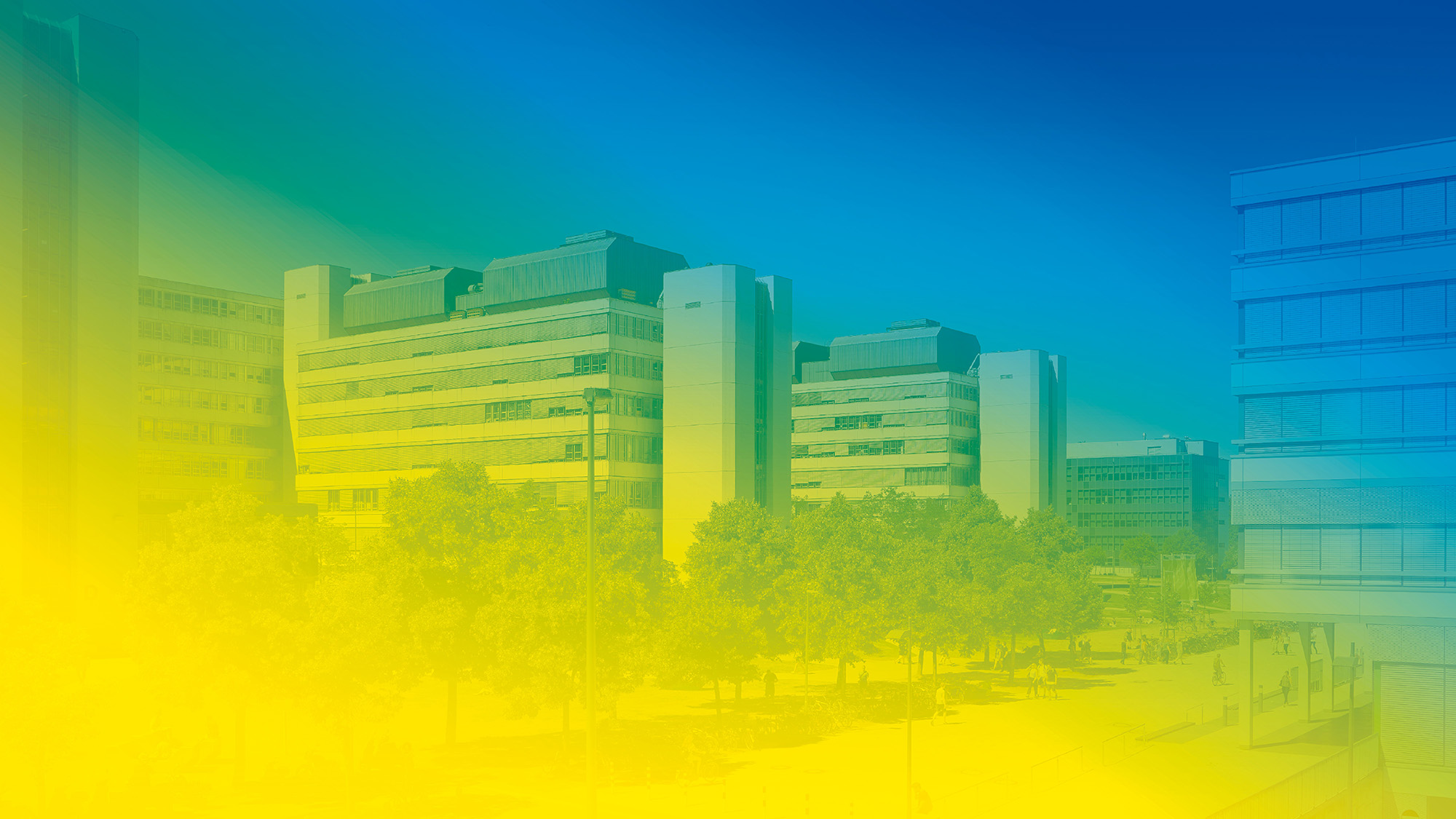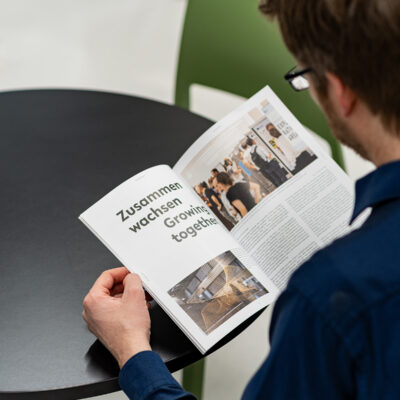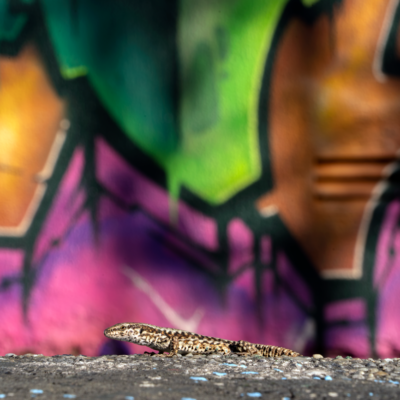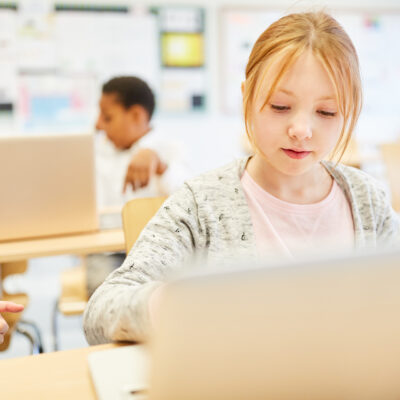Professor Dr. Olena Tupakhina is a Head of Ukrainian Zaporizhzhia National University (ZNU) Project Office, permanent member of the University’s Strategic Development Board and teacher in British and American Studies. Zaporizhzhia is located about 60 kilometers from the front line of the Russian war of aggression in Ukraine. In mid-December 2022, Olena Tupakhina visited Bielefeld University as a representative of ZNU. Together, it was possible to develop a programme in which academics and staff from Zaporizhzhia come to Bielefeld for short stays – the next step of a cooperation between the two universities. What the new programme is about and how members of Bielefeld University can help the Ukrainian partners – an interview with Olena Tupakhina.
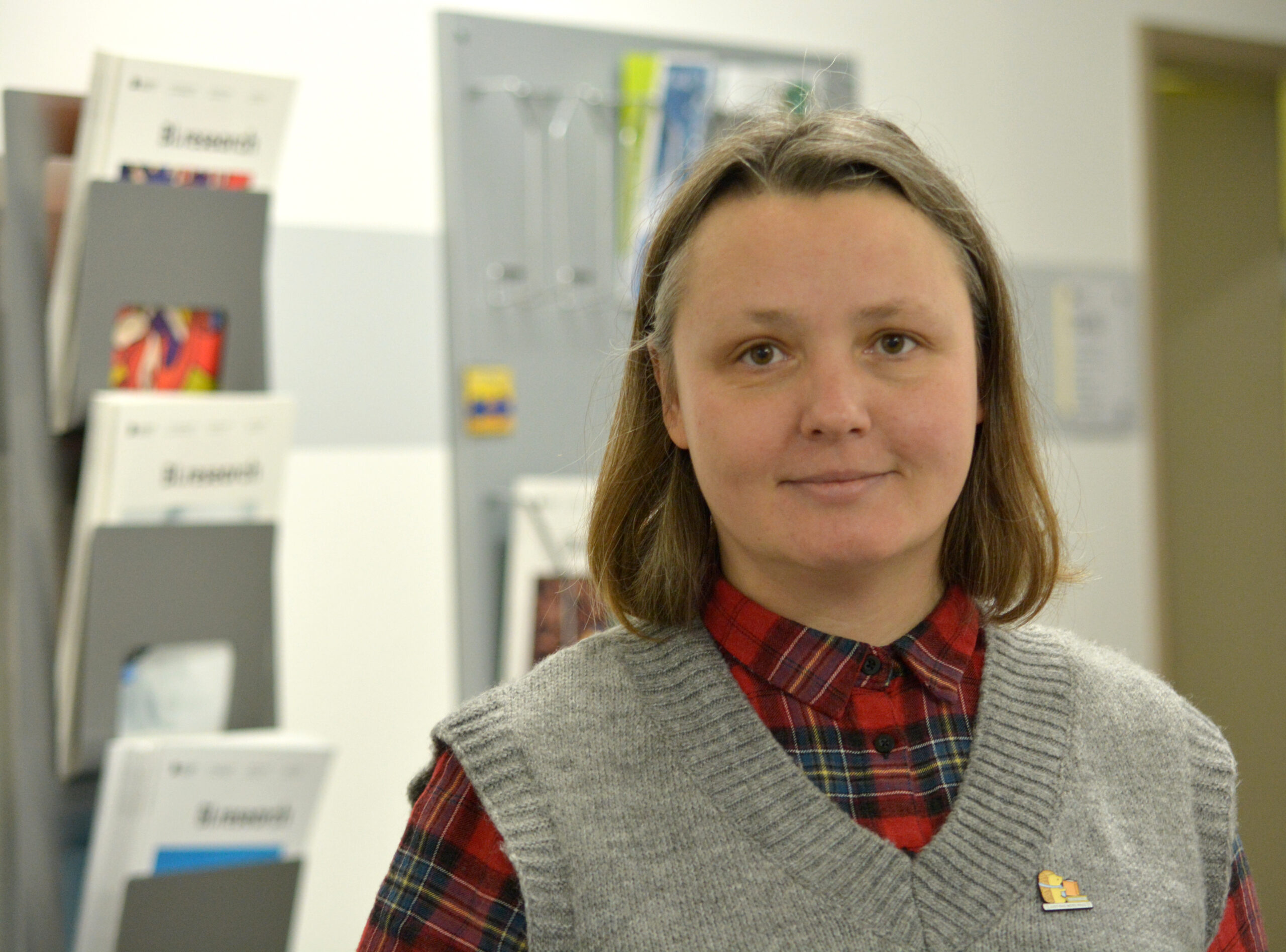
© Bielefeld University
Mrs. Tupakhina, in which situation do we reach you today?
The day has started with two air fire alarms. When there is such alarm, everything stops. We stop and resume when the time allows. We also must stop classes with our students that are currently running online. Continuing online teaching out of the bunker doesn’t really work because the connection is poor. That is why we have a flexible schedule: We have classes very early in the morning and very late in the evening when there is a relatively calm time. Usually the alarms happen in the middle of the day.
Luckily there was no blackout since this morning, though they happen. Zaporizhzhia region is quite famous for energy generating, with our power plants, a huge hydroelectric plant and the largest nuclear plant in Europe. No wonder that we are number one target if you want to ruin the energy infrastructure in Ukraine.
How did the cooperation between Zaporizhzhia National and Bielefeld University come about?
It was a lucky coincident that we got in contact with one Ukrainian scientist who is working at Bielefeld University. This is actually how we got involved into the initiative “Ukraine digital” of German Academic Exchange Service (DAAD): 190 of our students directly affected by the war got financial support from DAAD by Bielefeld University. I can’t describe how happy they were, when they got to know. 200 Euro per month per person is a huge amount of money for people who have lost and left everything.
My colleagues in Bielefeld explained that many members of your university were eager to help, but simply didn’t know how. This is how we came up with the idea of opening online-course at Bielefeld University in German academic writing for students in Zaporizhzhia. Also, one of the courses at the Center of Interamerican Studies (CIAS) was opened for our students from Ukraine. We decided to continue and deepen this cooperation. During my stay in Bielefeld we could establish a programme for academics from Zaporizhzhia that allows them to come to Bielefeld for short-term research stays.
How do Ukrainian and academics in Bielefeld benefit from the cooperation?
We, the teachers from Zaporizhzhia, need more expertise in the area of e-learning. We have some experience in online teaching – also by the COVID pandemic. Beyond that, however, it is above all field expertise, because we were forced into it by the war. From what I have seen on your campus, you have a strong Teaching and Learning Department. If our teachers get some support and guidance, they could actually make their online sessions with our students even more interesting, functional, entertaining and productive. We also have directions of our research work that can be mutually interesting. For example, we come from a region which has a huge cultural and historical heritage and we have many historians and sociologists working on these topics. Their research interests can be linked to those of scientists in Bielefeld. Also, I know that you have a strong Institute for Interdisciplinary Research on Conflict and Violence and this is sadly the field we are experts in now. Ukrainians can bring their experience and can share it and talk about what they have witnessed.
What does the programme do for Ukrainian scientists?
Right in the beginning of the Russian assault, in March, we had a rocket strike close to our campus: Lots of buildings were damaged, windows shuttered and we lost some of our equipment. Nevertheless, we tried to resume our research and teaching at least partially on March 28th 2022. From my own experience I can say that for most of my students studying is the only connection to normal life. For me as well as for the majority of my colleagues, this is where we feel a responsibility for our students to create the best possible teaching in this current situation and we will work no matter what. Teacher and researcher is a profession, where you can never stop. You need to constantly upgrade yourself, you need to be involved in the discourse of your field. War is actually a huge challenge for that: It really gets you unfocussed, you can lose the state of affairs in your field. For our academic staff and researchers this program is a great opportunity to be able to concentrate again on their job and to regain what they have lost during those first months of the war and onwards. Getting back to resources, communicating with colleagues of their field – this also is a great contribution to their professional upgrade. It’s their chance to get back to their field.
